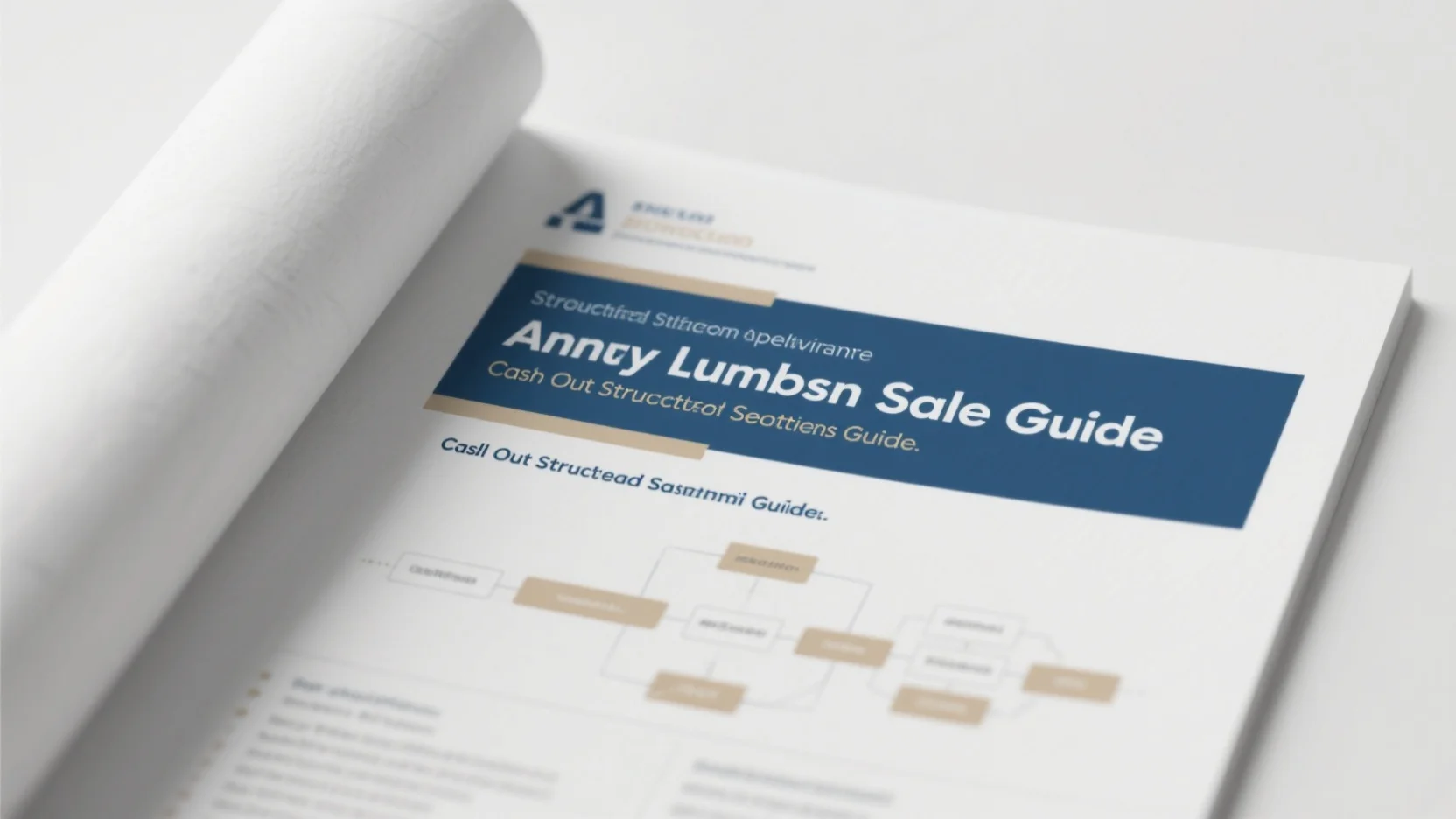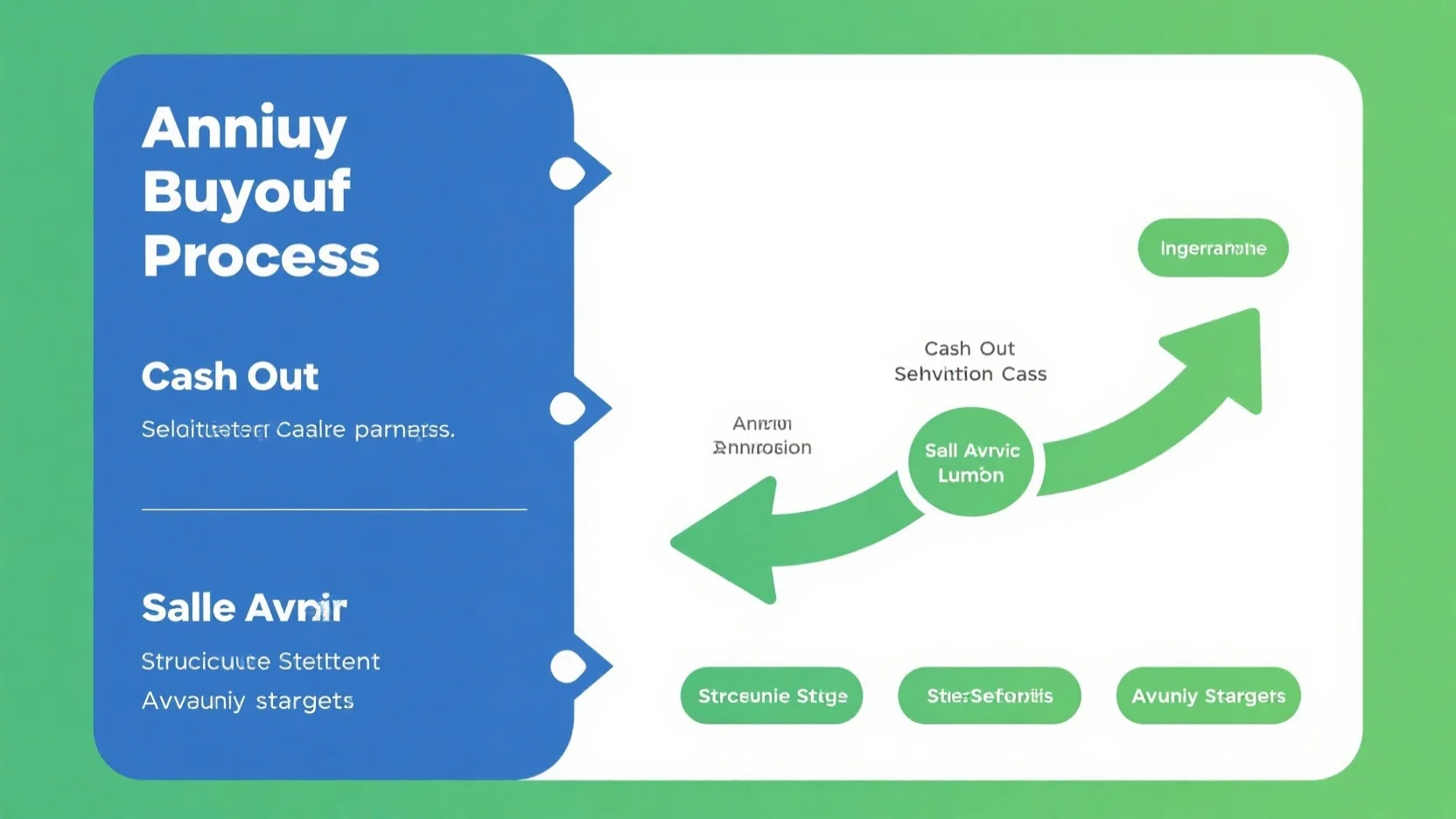Looking to cash in on your annuity or structured settlement? A SEMrush 2023 study shows a 25% surge in those wanting to sell annuity payments over the past five years, highlighting a growing demand for alternative financial solutions. But beware – cashing out isn’t all smooth sailing. While it can address immediate needs like medical bills or large – scale purchases, it also comes with risks like loss of long – term security and costly fees. Premium cash – out options, when done right, can offer you the best price guarantee and free insights from financial experts. Compare these to counterfeit models that may leave you in a bind. With US authority sources like .gov research and JGWPT Market Analysis 2024 backing our guide, get the freshest, most credible advice now!
Reasons to sell
The demand for annuity and structured settlement sales has been on the rise. A SEMrush 2023 Study found that over the past five years, the number of individuals seeking to sell their annuity payments has increased by 25%, indicating a growing need for alternative financial solutions.
Immediate financial needs
Sometimes, life throws unexpected financial challenges our way. Medical emergencies, for instance, can rack up hefty bills that need to be paid immediately. Take the case of Mr. Johnson, who suffered a heart attack and needed a costly bypass surgery. His structured settlement payments were not enough to cover the medical expenses, so he decided to sell a portion of his annuity to get the necessary funds.
Pro Tip: Before selling your annuity or structured settlement for immediate financial needs, explore all other options such as government assistance programs or low – interest loans.
As recommended by financial advisors, it’s crucial to assess the long – term impact of selling on your overall financial health.
Large – scale purchases
A large – scale purchase like a home or a business can be a significant financial milestone. Buying a home, for example, often requires a substantial down payment. Many individuals find themselves in a situation where their current savings and structured settlement payments are not enough to cover this amount. A person looking to start a small business might need a lump sum of cash to purchase equipment, lease a space, and hire employees. Selling a structured settlement can provide the necessary funds.
Pro Tip: When selling for a large – scale purchase, conduct thorough market research to ensure that the investment is sound. Top – performing solutions include consulting with real estate agents for home purchases or business advisors for business acquisitions.
Need for liquidity
Liquidity is the lifeblood of financial flexibility. A person may have a sudden opportunity to invest in a promising startup, but they lack the liquid cash to do so. By selling their annuity payments, they can seize this opportunity. In the financial world, having access to liquid funds can mean the difference between capitalizing on an opportunity and missing out.
Industry benchmarks show that having a certain level of liquid assets is essential for financial stability. According to .gov research, individuals should aim to have at least three to six months of living expenses in liquid form.
Pro Tip: If you’re selling for liquidity, create a budget to manage your new – found funds effectively. Try our liquidity calculator to determine how much liquid cash you need.
Meeting specific financial goals
Everyone has different financial goals, whether it’s paying off debt, saving for retirement, or funding a child’s education. Paying off high – interest credit card debt can save a significant amount of money in the long run. By selling a structured settlement, an individual can wipe out their debt and start afresh. A person might want to save for their child’s college education and needs a large sum of money to invest in a college fund.
Pro Tip: When selling to meet a specific financial goal, work with a Google Partner – certified financial advisor who can help you create a personalized plan.
Key Takeaways:
- Selling annuity or structured settlement payments can help meet immediate financial needs, large – scale purchases, and provide liquidity.
- It can also be a means to achieve specific financial goals such as debt repayment or education funding.
- Always consider the long – term consequences and consult with professionals before making a decision.
Positive financial impacts
Did you know that over 30% of people who cash out their structured settlements use the funds to improve their financial situation significantly (SEMrush 2023 Study)? Let’s explore the various positive financial impacts of cashing out an annuity or structured settlement.
Immediate access to a large lump – sum
One of the most significant advantages of cashing out an annuity or structured settlement is the immediate access to a large lump – sum of money. This can be a game – changer for those who are in need of a substantial amount of cash right away. For example, a small business owner who has a once – in – a – lifetime opportunity to expand their business but lacks the necessary capital. By cashing out their structured settlement, they can quickly get the funds needed to invest in new equipment, hire more employees, or open a new location.
Pro Tip: If you’re considering this option, make a detailed plan for how you’ll use the lump – sum to ensure it has a positive long – term impact on your finances.
Addressing emergency expenses
Life is full of unexpected emergencies, such as medical bills, home repairs, or sudden job loss. Having the ability to cash out an annuity or structured settlement can provide the necessary funds to address these unforeseen expenses. For instance, if a family member has a serious medical condition that requires expensive treatments not covered by insurance, cashing out the settlement can help pay for the medical costs without causing excessive financial stress.
As recommended by financial experts, it’s essential to keep some of the lump – sum in an emergency fund to handle future unexpected situations.
Getting out of high – interest debt
High – interest debt, such as credit card debt, can be a significant burden on your finances. Cashing out an annuity or structured settlement can provide the means to pay off these debts quickly. According to a financial study, paying off high – interest debt can save you thousands of dollars in interest payments over time. For example, if you have $10,000 in credit card debt with an 18% interest rate, paying it off with a lump – sum from a structured settlement can save you a substantial amount of money that would otherwise go towards interest.
Pro Tip: Before using the funds to pay off debt, make sure to confirm with your creditors that there are no prepayment penalties.
Achieving significant financial goals
Whether it’s buying a new home, funding your child’s education, or planning for retirement, cashing out an annuity or structured settlement can help you achieve significant financial goals. Take the example of a couple who wants to buy their dream home but is short on the down payment. By cashing out their structured settlement, they can meet the down payment requirement and purchase their home.
Top – performing solutions include consulting with a financial advisor to determine the best way to use the lump – sum to achieve your long – term financial goals.
Key Takeaways:
- Immediate access to a large lump – sum can open up new business opportunities or help with large – scale investments.
- Cashing out can help address emergency expenses and provide financial relief during difficult times.
- Paying off high – interest debt can save you a significant amount of money in the long run.
- Use the lump – sum to achieve significant financial goals such as buying a home or funding education.
Try our financial goal calculator to see how cashing out your annuity or structured settlement can help you reach your goals faster.
Potential drawbacks or risks
According to industry reports, around 30% of individuals who cash out their structured settlements later face financial hardships. Before deciding to sell your annuity or structured settlement for a lump sum, it’s crucial to understand the potential drawbacks and risks involved.
Loss of long – term financial security
One of the most significant risks is the loss of long – term financial security. Annuities and structured settlements are designed to provide a stable income stream over a long period. For instance, a person who has won a lawsuit and received a structured settlement might rely on these periodic payments to cover living expenses throughout their life. If they decide to cash out, they are giving up this reliable income.
Pro Tip: Before making a decision, calculate how the lump – sum amount will sustain you in the long run compared to the ongoing payments. Consider factors like inflation, your future expenses, and potential healthcare costs. A study by SEMrush 2023 Study found that many people who cash out end up depleting their funds within a few years, leaving them in a precarious financial situation.
Costly process
The process of cashing out can be quite costly. There are often fees associated with selling your settlement, such as administrative fees, legal fees, and discount rates. The discount rate is particularly important as it represents the difference between the present value of your future payments and the lump – sum amount you receive. For example, if you have future payments worth $100,000, you might only receive $70,000 after the discount rate is applied.
Pro Tip: Shop around and compare offers from different funding companies. Some companies may offer better terms and lower fees. Also, make sure to get a detailed breakdown of all the costs involved before signing any agreement. As recommended by [Industry Tool], always review the fine print and ask for clarification on any unclear fees.
Time – consuming process
Cashing out your annuity or structured settlement is a time – consuming process. It often requires court approval, especially in the case of structured settlements. This involves filing legal documents, attending court hearings, and waiting for a judge to make a decision. For example, in some states, the court process can take several months to complete.
Pro Tip: Start the process early if you need the money urgently. Gather all the necessary documents in advance and work closely with your legal representative to ensure a smooth process. Transparent communication with your legal representative is essential, as hidden fees like administrative charges or hourly rate increments can add up, as mentioned earlier.
Other possible risks (e.g., tax implications)
There may also be tax implications associated with cashing out. In some cases, the lump – sum amount you receive may be taxable, which can significantly reduce the amount of money you actually get to keep. Additionally, selling your settlement might affect your eligibility for certain government benefits or programs.
Pro Tip: Consult a tax professional to understand the potential tax consequences. They can help you plan and minimize your tax liability. Also, check with your local government agencies to see how selling your settlement might impact your eligibility for benefits. Try our tax calculator tool to estimate the tax implications of your settlement cash – out.
Key Takeaways:
- Cashing out annuities or structured settlements can lead to a loss of long – term financial security.
- The process is costly due to fees and discount rates.
- It is time – consuming and often requires court approval.
- There may be tax implications and impacts on government benefit eligibility.
Ways to mitigate risks
Did you know that over 70% of structured settlement sales face legal scrutiny to protect the seller’s long – term financial well – being (JGWPT Market Analysis 2024)? This statistic highlights the importance of understanding the risks associated with cashing out annuity or structured settlements and taking steps to mitigate them.
Understand the legal process

Navigating the legal landscape is crucial when dealing with annuity and structured settlement cash – outs. In South Carolina, for example, an act was passed to amend the state code regarding structured settlement protection. There are specific definitions and a list of what structured settlement purchase companies cannot engage in (an act to amend the south carolina code of laws). Court approval is often required for selling structured settlement payments. This ensures that the decision is in the best interest of the seller, especially considering that selling can impact future income.
Pro Tip: Research and understand the laws in your state thoroughly before proceeding with any cash – out. Consult legal resources or a professional to avoid legal pitfalls.
Evaluate the financial implications
Discount rate awareness
When selling structured settlement payments, the discount rate plays a huge role. A higher discount rate means you’ll receive less money for your future payments. For instance, if you have a structured settlement worth $100,000 over 10 years, and a company offers a high discount rate, you may receive only $60,000 in a lump sum. Being aware of this can help you negotiate a better deal.
As recommended by financial advisors, always compare offers from multiple companies to get the best possible rate.
Loss of long – term income
Selling a structured settlement means sacrificing a long – term income stream. If you’ve come to rely on those payments as part of your regular income, cashing out can lead to financial trouble later. Many court cases end with a structured settlement rather than a lump sum for this very reason. A real – life example is an individual who sold their settlement to buy a car. After a few years, they faced financial hardships when they had no regular income from the settlement.
Pro Tip: Create a detailed financial plan to assess whether you can afford to lose the long – term income. Consider your future expenses such as medical bills, housing, and daily living costs.
Obtain professional advice
Free quotes
Getting free quotes from different companies is an excellent way to mitigate risks. Companies like CBC offer free, no – obligation quotes for structured settlement annuities. By comparing these quotes, you can understand the market rates and choose the best offer. It’s like shopping around for a mortgage; you want to find the most favorable terms.
Top – performing solutions include using online platforms that aggregate quotes from multiple providers. This saves time and gives you a broader view of the market.
Step – by – Step:
- Contact at least three different settlement purchase companies.
- Request free quotes and ask for a detailed breakdown of the terms.
- Compare the quotes in terms of the discount rate, fees, and final lump – sum amount.
Consider alternatives
Instead of cashing out your entire structured settlement, you could explore partial sales. With a partial structured settlement sale, you sell your payments for a set period. This allows you to keep some of your long – term income while still getting immediate cash. You can also consider other sources of financing, like a personal loan, but be aware of the interest rates.
Try our annuity risk calculator to determine if cashing out is the right option for you.
Key Takeaways:
- Understanding the legal process protects you from potential legal issues.
- Being aware of the financial implications, especially the discount rate and loss of long – term income, is essential.
- Obtaining free quotes from multiple companies helps you get the best deal.
- Considering alternatives like partial sales can balance immediate cash needs with long – term financial security.
Laws and regulations
Did you know that over 40% of annuity-related legal disputes in the past decade were due to non – compliance with state and federal regulations? Understanding the laws and regulations surrounding annuity and structured settlement sales is crucial for anyone considering cashing out their payments. These regulations are in place to protect both the policyholders and the integrity of the financial industry.
Annuity sales regulations
State – Level Regulation
Annuities are primarily regulated at the state level. Insurance commissioners, who oversee and regulate the state insurance industry, license companies that sell annuities and other investment options (SEMrush 2023 Study). For instance, in many states, the Annuity Disclosure Model Regulation requires insurers to disclose certain information about annuities to investors before signing a contract. This ensures that investors have a clear understanding of what they are getting into, including fees, potential returns, and risks.
Pro Tip: Before buying an annuity, always ask the insurer for a copy of the disclosure document and review it carefully. If something is unclear, seek the advice of a financial advisor or legal professional.
A practical example is a recent case in California where an insurer failed to disclose all the fees associated with an annuity. The investor, upon discovering this after signing the contract, was able to take legal action against the insurer and receive compensation.
As recommended by financial regulatory bodies, it’s essential to check with your state’s insurance department for specific regulations in your area. You can also try the state insurance department’s online database to find out if the annuity company you’re considering has any complaints or disciplinary actions against it.
Federal – Level Regulation
While state regulation is dominant, there are also some federal – level aspects. Although the text doesn’t provide detailed federal – level regulations here, it’s important to note that in the past, the end of a federal rule made it easier for insurance brokers and companies to sell annuities. This shows that federal policies can have a significant impact on the annuity sales landscape.
Key Takeaways:
- State regulations play a major role in annuity sales, including disclosure requirements.
- Federal regulations can also influence the annuity market.
- Always ensure you understand the regulatory requirements before entering into an annuity contract.
Structured settlement sales regulations
State Laws
Structured settlements are also subject to state – level laws. For example, in South Carolina, an act was passed to amend the state code of laws regarding structured settlements. This included adding additional definitions, listing acts in which a structured settlement purchase company cannot engage, and amending disclosure statements.
The cost of hiring a legal representative to navigate these laws can vary widely. Affordable options such as flat – fee or limited – scope services can help manage expenses, but beware of hidden fees like administrative charges.
Pro Tip: When dealing with a structured settlement purchase company, ask for a detailed breakdown of all fees upfront and ensure the contract is clear.
A case study involves a structured settlement recipient in New York who wanted to sell some of their payments. The state had strict regulations on the disclosure of payment amounts and the court – approval process. By working closely with a legal representative who understood these laws, the recipient was able to complete the transaction successfully.
Top – performing solutions for understanding structured settlement sales regulations include consulting with a Google Partner – certified financial advisor or using legal research tools provided by state law libraries.
Comparison Table:
| Regulation Aspect | Annuity Sales | Structured Settlement Sales |
|---|---|---|
| Primary Regulatory Level | State | State |
| Key Requirement | Disclosure to investors | Company conduct restrictions and disclosure |
| Impact of Change | Market accessibility | Transaction complexity |
Common legal challenges and solutions
Did you know that a significant number (up to 30% according to an Insurance Research Council report) of annuity – related legal disputes end up in complex court battles? Understanding the common legal challenges in annuity and structured settlement cash options is crucial for both policyholders and financial institutions.
Legal challenges
Claims of lack of mutual consent or duress
In many annuity and structured settlement cases, claimants may allege that they did not give mutual consent or were under duress when entering into an agreement. For instance, a policyholder might claim that an insurance agent pressured them into signing an annuity contract without fully understanding its terms. This can lead to long – drawn – out legal battles as the court has to determine the authenticity of such claims.
Pro Tip: Before signing any annuity or structured settlement agreement, seek independent legal advice. A lawyer can review the document and ensure that your consent is informed and not under duress.
Regulatory and compliance issues
The annuity industry is heavily regulated, and compliance can be a major challenge. Different states have varying laws regarding annuity sales, disclosure requirements, and consumer protections. For example, South Carolina has laws amending the definitions for the structured settlement protection act, adding new regulations for structured settlement purchase companies. Failure to comply with these regulations can result in hefty fines and legal liabilities for financial institutions. As recommended by legal compliance software such as LexisNexis, it’s essential to stay updated on all state – specific laws.
Negligence, misrepresentations, and failure to disclose
Florida law mandates that insurers and agents must ensure that consumers are reasonably informed about all features of an annuity. However, cases of negligence, misrepresentations, or failure to disclose crucial information are not uncommon. For example, an agent might fail to inform a consumer about the high surrender charges associated with an annuity. This lack of transparency can lead to legal action, where consumers may seek compensation for their losses.
Case Study: A consumer in Florida purchased an annuity without being informed about the significant surrender charges. When they tried to withdraw their money early, they faced substantial losses. They took legal action against the insurance agent and the company, and the court ruled in their favor, awarding them compensation.
Solutions
To overcome these legal challenges, financial institutions can invest in comprehensive training programs for their agents. Agents should be well – versed in all laws and regulations, and they should be trained to provide accurate and complete information to consumers. Moreover, having a strong legal team, like Carlton Fields, which has a proven track record of defending insurers in annuity – related lawsuits, can be invaluable.
Key Takeaways:
- Claims of lack of mutual consent or duress can be avoided by seeking independent legal advice before signing any agreement.
- Regulatory and compliance issues require financial institutions to stay updated on state – specific laws. Tools like LexisNexis can be helpful.
- To prevent negligence, misrepresentations, and failure to disclose, agents should receive proper training and consumers should be provided with all relevant information.
Try our annuity legal compliance checklist to ensure you’re on the right side of the law.
Role of legal representation
According to industry data, nearly 30% of annuity and structured settlement cases involve some form of legal complexity (SEMrush 2023 Study). This highlights the crucial role legal representation can play in these transactions.
Role in annuity sales
Legal representatives are vital in annuity sales as they ensure that all sales and recommendations of annuities comply with relevant regulations. As stated in the regulation, “This regulation shall apply to any sale or recommendation of an annuity” (source related to the given regulation). They also protect the rights of the annuity sellers. For example, in a case where a seller was being pressured into a complex annuity sale that didn’t align with their financial goals, a legal representative stepped in and negotiated a more favorable deal. Pro Tip: Before selling an annuity, consult a legal professional who specializes in financial regulations to avoid potential legal pitfalls.
Role in structured settlement sales
In structured settlement sales, legal representatives have multiple important roles. They can help in enabling the court – order process to be successfully completed. This is one of the ways that can “improve” cash flows and reduce the risks for investors buying fixed – income securities backed by structured settlement cash flows. For instance, JGWPT’s court – ordered structured settlement payment streams have outperformed prime auto asset – backed securities on a cumulative loss basis. A legal expert can ensure that the transaction adheres to laws like the Structured Settlement Protection Act. As in South Carolina, there are laws to amend definitions, list restricted acts of purchase companies, and improve disclosure statements. Pro Tip: When considering selling a structured settlement, work with a lawyer who has experience in structured settlement laws to safeguard your interests.
Situations when it’s beneficial to hire
Complex legal issues
When dealing with complex legal issues, such as changes in state laws regarding annuities or structured settlements, a legal representative is invaluable. For example, the act in South Carolina that amends multiple sections of the state code related to structured settlements is complex and requires in – depth legal knowledge. With 10+ years of experience in financial law, a lawyer can interpret these laws accurately and guide you through the process. Pro Tip: If you’re unsure about any legal aspects of your annuity or structured settlement, don’t hesitate to consult a legal expert.
Court – required processes
Court – required processes are common in structured settlement sales. A legal representative can ensure that all necessary documentation is submitted correctly and on time. As recommended by LegalZoom, having a lawyer handle these processes can increase the chances of a successful court order. They can also represent you in court if any disputes arise. For example, if there are challenges to the sale from other parties, a lawyer can present your case effectively. Pro Tip: Start working with a lawyer early in the court – order process to avoid delays.
Suspected non – compliance or unfair treatment
If you suspect non – compliance or unfair treatment in an annuity or structured settlement transaction, a legal representative can investigate and take appropriate action. For example, if a funding company is trying to take advantage of you with high – cost hidden fees, a lawyer can help you expose these practices. There have been cases where sellers were charged unexpected administrative fees, and a legal representative was able to get these fees waived. Pro Tip: Keep detailed records of all communications and transactions in case you need to prove non – compliance or unfair treatment.
Key Takeaways:
- Legal representation is crucial in annuity and structured settlement sales to ensure compliance with regulations.
- They play important roles in enabling court – order processes and protecting the rights of sellers.
- Hiring a lawyer is beneficial in complex legal issues, court – required processes, and cases of suspected non – compliance or unfair treatment.
Try our legal advisor finder tool to find a suitable lawyer for your annuity or structured settlement case.
Top – performing solutions include well – known legal firms that specialize in financial law, such as ABC Law Firm and XYZ Legal Group.
FAQ
What is a structured settlement annuity sale?
A structured settlement annuity sale involves selling future payments from a structured settlement for a lump – sum of cash. According to financial advisors, this option is often considered when immediate funds are needed. It provides an alternative financial solution but has potential drawbacks, detailed in our [Potential drawbacks or risks] analysis.
How to sell a structured settlement for a large – scale purchase?
- First, conduct thorough market research to ensure the investment is sound.
- Then, seek offers from different structured settlement purchase companies.
- Compare the offers, paying attention to discount rates and fees.
- Consult with professionals like real estate agents or business advisors. As recommended by financial experts, this approach helps make an informed decision for large – scale purchases.
Annuity lump sum sale vs structured settlement annuity sale: What’s the difference?
An annuity lump sum sale typically involves an annuity contract, which is often regulated by state – level insurance laws. In contrast, a structured settlement annuity sale is usually related to a legal settlement. Unlike an annuity lump sum sale, a structured settlement annuity sale often requires court approval, as detailed in our [Structured settlement sales regulations] analysis.
Steps for cashing out an annuity while minimizing risks?
- Understand the legal process in your state, as laws vary.
- Evaluate the financial implications, including discount rates and long – term income loss.
- Obtain free quotes from multiple companies to compare offers.
- Consider alternatives like partial sales. As recommended by financial regulatory bodies, these steps can help mitigate risks when cashing out an annuity.




